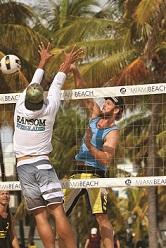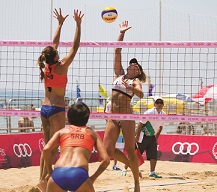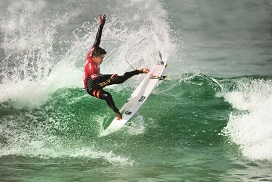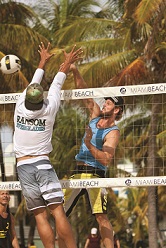

While most areas have a convention and visitors bureau (CVB) as a city department, chamber of commerce division or its own entity funded by a portion of the area’s lodging tax (or similar structure), many communities have grasped onto the sports tourism mindset.
Sports events generate room nights, while athletes, families and friends spend time and money off the fields at restaurants, attractions and retailers. It is a no-brainer for destinations to take advantage of this economic boom if there are available resources to do so. Therein lies the birth of the sports commission – a major time and money saver for sports event planners.
Use the CVB/Sports Commission as a Resource
The local CVB/sports commission has done much of the work for sports planners. They have existing relationships with the cities, facilities and other area contacts as well as a wealth of knowledge about what will and will not work in their communities.
As an example, the Gulf Shores & Orange Beach Sports Commission, a department within Gulf Shores & Orange Beach Tourism (CVB) on the Alabama Gulf Coast, works with its industry partners, particularly its sponsors, and community contacts on a daily basis to maintain constant communication and strong relationships. These connections translate into a huge resource for event planners to avoid red tape while working out event details and making the bottom-line dollar stretch further.
It is the goal of the sports commission to create partnerships and make events seamless. If done correctly, it creates a mutually beneficial relationship.
“Since its inception, the Gulf Shores & Orange Beach Sports Commission has been a partnership between our team, the cities of Gulf Shores and Orange Beach as well as the Coastal Alabama Business Chamber and athletic departments at our local schools,” says Beth Gendler, vice president of sales for the sports Commission and CVB.
A good partnership, Gendler notes, allows the sports commission to work with events to learn and grow together, and encourages a sports commission or CVB to seek out the types of tournaments which work best in that destination and ultimately help service those tournaments and events with a high degree of professionalism.
Important information to provide commissions off the bat are the time of year for the event, expected number of participants, approximate number of rooms and length of stay, field layout and set-up requirements, gate and parking needs, volunteer desires as well as any other top-of-mind details so the commission can provide proper services to the organizer.
Planners and CVBs/sports commissions should both have event planning check-lists to start the two-way communication process. Questions are key and help commissions accommodate event organizers in the best way possible. Remember that more information is always better.
Some great questions for planners to pose are the following:
What services does the CVB/sports commission provide?
Who is my direct CVB/sports commission contact?
What type of paperwork is needed to secure facilities (permit, contract)?
What fees are associated with field or facility usage?
What services are included in the field or facility usage fees?
Who is the field or facility contact?

Take Advantage of the CVB/Sports Commission’s Services
Sports commissions are one-stop shops for planners. Ideally, the commission staff assists organizers from start to finish with finding appropriate facilities and the best accommodation rates for participants. They also help planners choose venues for opening ceremonies, awards banquets, coaches’ meetings and team registration. They will have extensive information on vendors in the area when it comes to food, souvenirs, T-shirts, trophies and more, saving the even planner the cost of shipping materials to the site.
Commissions may also offer grant programs in which they provide cash and in-kind grants to help reduce event costs. Grant recipients typically find they have the freedom to dedicate more funds to marketing the event and increasing registration.
Other helpful resources these one-stop shops may offer are:
Special accommodation rates
Access to volunteers
Complimentary welcome bags and coupons for attendees
Vendor and supplier referrals (In addition to T-shirts and trophies, event planners can take advantage of mailing/shipping services, speakers, caterers, etc.)
Public relations tool kit to help with event promotion
Media assistance
Marketing aid (CVB/sports commission website and social media promotion; pre-packaged social media content; area photos; videos and banner ads; digital postcards)
Welcome letters from local officials
Ideally, a sports commission can be a one-stop-shop for the incoming event. Our organization was able to see the benefits of this the United States Specialty Sports Association (USSSA) came to town for its Global Sports World Series for youth baseball and softball. This event series takes place each summer along with a multitude of other USSSA events throughout the year.
In essence, CVB and sports commission staffs become event partners with an overarching goal of ensuring each event is memorable and one of the best and most successful of the year. For events wishing to return to a destination year after year, there are several best practices to follow. In general, good communication is the key to success. It makes a great starting point – and a rule to follow in all dealings with one another.

Once the planner and CVB/sports commission have a solid partnership, both sides generally want to continue with a long-term relationship. Not only do organizers know what to expect, they do not have to re-create the event and can work with the destination to improve upon existing plans and past years’ experiences. After all, nobody wants to re-invent the wheel each time. If a sports event succeeds and continues to cultivate a relationship by returning year after year, working with the sports commission pays off with less time and money wasted and an increase in event attendance or participation. It also helps build the reputation of the event, both within the destination and within the sport itself.
What we can see from our side of the equation is that sports events are good for business. For Gulf Shores and Orange Beach, long-term contracts with sporting events have contributed to a major sports tourism boom for the destination and growing partnerships with multiple sports groups. In 2014, the Gulf Shores & Orange Beach Sports Commission reported an unprecedented 102 events facilitated, resulting in 76,024 room nights and $30.8 million in direct visitor spending – a 10.3 percent increase over 2013. That is an example of what sports events can bring to an area and how much of a benefit the destination can get.
On the event side, taking advantage of a sports commission’s services and community relationships paired with enjoyable destination experiences makes pursuing long-term contracts a viable and worth-while option. Long-term contracts lend themselves to easier financial commitments for the host city, and other events benefit from contract-driven facility improvements. They also lead to good relationships with event planners, athletes and visitors – and to an incentive to keep facilities state-of-the-art.
In Orange Beach, we have been able to host the Southeastern Conference (SEC) Women’s Soccer Championship for 11 years. With the launch of ESPN’s SEC Network in 2014, the 2014 championship matches were filmed in high-definition and aired live throughout the week with additional destination coverage of area scenery, attractions and more. During the championship week, the SEC announced a renewed long-term contract with the area, with a condition for the city to upgrade the lights on its championship soccer field – a win/win, as far as our area was concerned since it serves not just that event. Other events, such as the National Association of Intercollegiate Athletics (NAIA) Women’s Soccer National Championship, another long-term relationship for the sports commission, benefit from these improvements.
Gendler reveals another example of athletic improvements in coastal Alabama.
“Our cities invest in keeping up current facilities and making improvements when needed to enhance athletes’ experiences and to attract other events,” Gendler explains. “The city of Gulf Shores upgraded their track facility in order to accommodate collegiate events. Once the track was upgraded to include throwing implement areas, steeplechase and expanded pole vault pits, we were awarded the NAIA Men’s and Women’s National Outdoor Track and Field Championships. The city knew the track needed repair, but they went above and beyond the needed repairs in order to host a national collegiate championship and to attract other collegiate events.”
Destination assets, such as a beach or other natural venues, can also lead to long-term contracts and event creation. And while a first-time event might mean the destination has to take a chance the first year, it can ultimately become a success – and that success means the chance was just a one-time investment.
In 2012, the sports commission facilitated the first-ever American Volleyball Coaches’ Association (AVCA) Women’s Sand Volleyball National Championships in partnership with the city of Gulf Shores, local restaurant and production sponsor The Hangout, and the Gulf Coast Region of USA Volleyball. After a successful first year, AVCA decided to move forward with a long-term contract with the commission through 2015.
In 2015, sand volleyball became an NCAA-sanctioned sport, and in 2016, the NCAA will host the championships. Through trial and error and years of developing a solid relationship, the coastal sports commission, along with the city and sponsors, was able to help create a fun, family-friendly, fan-centered event for coaches, players and spectators.
The majority of sports commissions across the country are tasked with bringing meaningful and impactful sports business to their communities. The focus for some organizations may be heads in beds, while others may concentrate on bringing nationally-recognized or lifestyle events that benefit their communities. Whichever your event is, it is essential to find the right destination to house it – someone who has the same goals and is a good match. Inherently, long-term contracts lend themselves to easier financial commitments on the host city’s part and play an intricate role in long-term planning and budgeting – think time, money and even event support staffs – for sports planners and CVBs/sports commissions.
Bring it all together
Sports planners and sports commissions work in tandem to foster and maintain firm partnerships. Sports commissions cannot exist without events, so their staff members desire to make planners’ lives easier by providing whatever level of assistance they require and helping create remarkable experiences for their groups.
When teams, families and fans travel for sports events, unforgettable moments off the field can translate into return trips for vacation. Positive feedback from athletes not only gives planners a reason to come back year after year, but also gives the destination an opportunity to inspire new brand advocates.
Essentially, the mutually beneficial relationships that planners and CVBs/sports commissions build are vital to sports tourism. CVBs and sports commissions serve as invaluable resources for planners and can assist from the planning stages all the way to the production and execution of events. As a huge bonus, sports commission services are totally free to planners, and these entities bring knowledge and resources to the table. The “easy button” for sports planners is just one call away.

